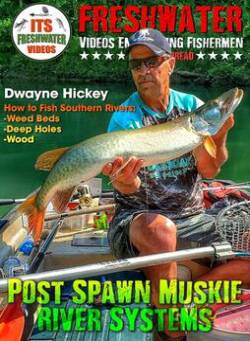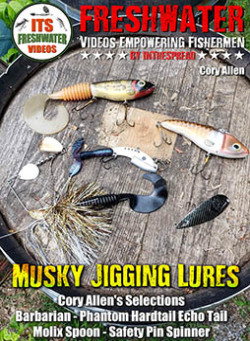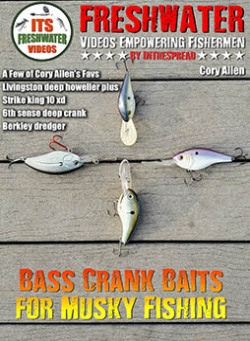Skinny water muskie fishing in river systems like the Collins demands simplified approaches because confined spaces concentrate fish around predictable structure. Fall transition increases aggression as cooling water triggers feeding, with muskie positioning around deep holes, rock beds, wood, and feeder creeks where Dwayne Hickey's streamlined six-lure selection provides comprehensive coverage applicable to any small river environment.
Muskie Fishing the Collins River Fall Transition
(00:17:12)Why Does Skinny Water Muskie Fishing Demand a Simplified Approach?
How Does Fall Transition Affect Muskie Aggression in River Systems?
What Lure Selection Provides Comprehensive Coverage in Skinny Water?
Hickey uses approximately 6 lures for comprehensive coverage, demonstrating that effective musky fishing doesn't require massive tackle selections when presentations match conditions. This simplified approach allows confidence in each lure's application rather than second-guessing choices.
- Deep holes offering thermal refuge and staging areas
- Rock beds creating current breaks and baitfish concentration
- Wood providing vertical structure and ambush points
- Feeder creeks bringing cooler water and food sources
Understanding which lures work specific features allows systematic coverage of productive water.
User Reviews
Dwayne Hickey
Dwayne Hickey, a passionate outdoorsman from McMinnville, Tennessee, is a renowned musky fishing guide. He primarily conducts expeditions in Center Hill Lake and Great Falls Reservoir, renowned for its natural bounty. Hickey's expertise extends beyond the Collins River to the Rocky River, Collins River, Caney Fork River, and Calfkiller River on Great Falls Lake. His encyclopedic knowledge of the river ecosystem and his renowned instructional videos reflect his dedication to fostering a deeper understanding of the river ecosystem.
Read more



